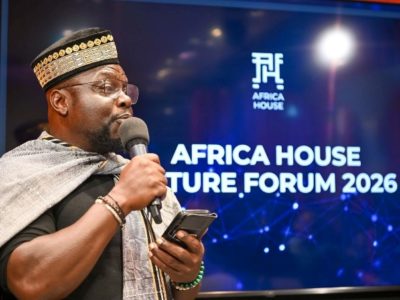China recently announced a new policy requiring influencers and content creators who speak on regulated topics — such as finance, health, law, or education — to hold verifiable academic or professional qualifications. In short: no degree, no discussion.
RELATED: TikTok forex influencers are giving misleading advice, study reveals
The government’s stated goal is to combat misinformation and raise the credibility of online voices. But this development also opens up broader conversations about trust, influence, and the quality of digital storytelling — themes that matter deeply to marketers, brand builders, and journalists alike.
The Bigger Picture: When Influence Meets Regulation
China’s decision isn’t just about censorship; it’s about control of credibility. Platforms like Douyin and Weibo are now required to verify creators’ credentials, label AI-generated content, and take down unverified claims.
From a marketing and branding standpoint, this is a major signal. The era of “anyone can say anything for clicks” is coming under pressure. Brands and audiences alike are beginning to demand proof of expertise, transparency, and verifiable facts.
In other words, credibility has become the new currency of influence.
Why It Matters for Nigeria
Nigeria’s creator economy is thriving — but it’s also noisy. We have thousands of creators producing content daily, yet many operate with little understanding of accuracy, ethics, or impact. Unverified claims, AI-fabricated stories, and sensational headlines are now part of our daily feeds.
If China’s move seems extreme, it still raises a critical question for us: How do we ensure credibility in a space flooded with content but short on truth?
As a marketing leader, I see both a challenge and an opportunity:
– The challenge:low-quality and unverified content is eroding audience trust.
– The opportunity: those who commit to verified storytelling, transparency, and factual integrity will stand out and earn deeper brand loyalty.
What We Can Learn — And Do
1. Prioritize credibility over virality.
Influence is shifting from who’s loudest to who’s most trusted.
2. Disclose sources and methods.
Show your process — cite data, name experts, link references.
3. Build authority through specialisation.
Focus on a domain where your experience or access gives you depth.
4. Collaborate responsibly.
Partner only with creators who align with your brand’s ethics and authenticity.
5. Prepare for future regulation.
Nigeria may one day follow suit; staying ahead with internal guidelines will protect your reputation and partnerships.
My Closing Thought
We’re entering an era where influence without integrity will fade fast. Whether you’re a marketer, journalist, or content creator, your greatest asset won’t be your reach — it’ll be your credibility.
As China tightens its grip on digital voices, Nigeria has a chance to chart a different course: not one of censorship, but of self-regulation, responsible creativity, and verified storytelling.
That’s the kind of creator economy worth building.
Samuel Alabi is a marketing leader and communications strategist with experience shaping brand growth across West and East Africa
References
- “China tightens the screws: Influencers now need degrees to speak on finance, health, law.” Livemint, October 2025. https://www.livemint.com/news/world/china-tightens-the-screws-influencers-now-need-degrees-to-speak-on-finance-health-law-11761619952479.html
- “China: Influencers Must Get Degrees Or Stay Silent.” StratNews Global, October 2025. https://stratnewsglobal.com/dont-miss/china-influencers-must-get-degrees-or-stay-silent
- “China just changed the rules for influencers — the world’s watching.” The Daily Star, October 2025. https://www.thedailystar.net/life-living/news/china-just-changed-the-rules-influencers-the-worlds-watching-4023031






























